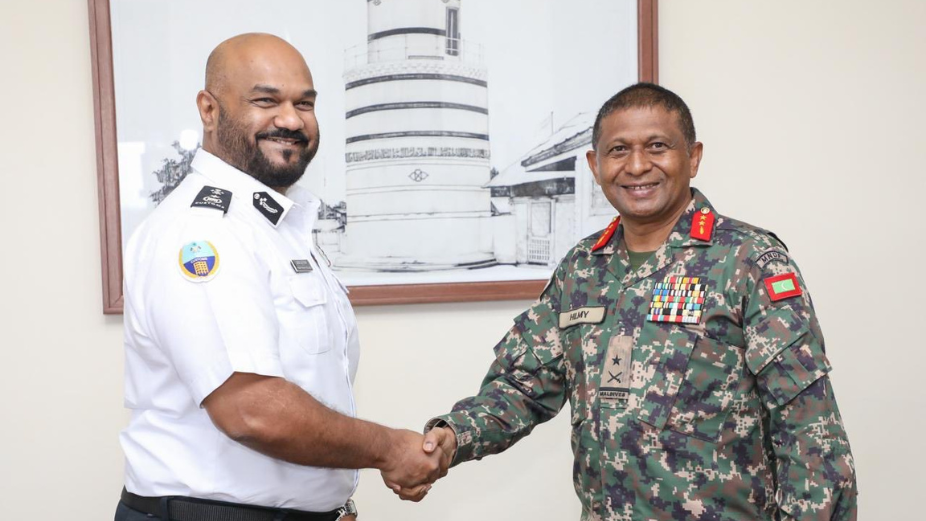
The Maldives Customs Service announced today its decision to acquire several drones to bolster the monitoring of vessels entering the country’s borders. This significant development was disclosed by the Commissioner General of Customs, Yoosuf Maniu Mohamed, during a session of the Parliament’s Committee on Security Services, also known as the 241 Committee.
For years, the Maldives Customs Service has struggled with inadequate resources to independently oversee maritime activities within its territory. Commissioner Maniu emphasised that this longstanding issue will soon be addressed with the aid of international allies. The government of Japan is set to gift an 85-foot vessel, while the governments of China and the United States are each contributing an additional vessel and drone.
“We need a drone. There is no way of monitoring vessels that enter this area besides physically going there. We are arranging to send the drone, assess it [the vessel], and then send our vessel if there appears to be a threat,” explained Maniu during the committee meeting.
The Maldives National Defence Force (MNDF) Coastguard Services has traditionally supported the Customs Service in monitoring vessels crossing into Maldivian waters. With the impending acquisition of drones, this collaboration will continue, ensuring that both entities work in unison. The operation of the new drones will be managed in partnership with the MNDF’s Air Corps, which was established following the procurement of two drones from Turkey. These drones are currently operated out of Noonu Atoll Maafaru Airport.
“Even if we get the drones, we will work so that the two institutes [MNDF and Customs] work together, and so that the quantity of MNDF drones increases. We will proceed through joint operations,” Maniu assured the committee.
Public Anxieties and Historical Mistrust
While the acquisition of drones marks a significant step forward in maritime security, it also rekindles longstanding anxieties within the Maldivian public. A historical mistrust of the security apparatus has been prevalent in the Maldives, fuelled by past incidents and a perceived lack of transparency. The introduction of surveillance drones could exacerbate these concerns, particularly regarding the potential for misuse and the infringement of individual liberties.
Surveillance and the Need for Legal Safeguards
The deployment of drone technology for surveillance purposes is not without precedent. Democratic nations that employ such technology have established robust legal frameworks to safeguard individual rights and ensure that surveillance activities do not overstep legal boundaries. For example, in the United Kingdom, the use of drones for law enforcement purposes is regulated by the Surveillance Camera Code of Practice, which mandates transparency, accountability, and the protection of privacy.
Similarly, the United States has implemented guidelines under the Federal Aviation Administration (FAA) and various state laws to ensure that drone operations respect civil liberties. These frameworks are designed to balance the need for security with the imperative of protecting individual freedoms.
The Path Forward for the Maldives
As the Maldives prepares to integrate drone technology into its maritime surveillance operations, it is crucial that the government establishes a comprehensive legal framework to govern their use. Such a framework should be transparent and inclusive, involving public consultations to address concerns and build trust. The legislation should clearly define the scope and limits of drone surveillance, establish oversight mechanisms, and ensure accountability for any misuse.
Furthermore, it is essential that the government engages with civil society organisations, legal experts, and international bodies to draw on best practices and lessons learned from other democratic nations. By doing so, the Maldives can implement a balanced approach that enhances security while upholding the fundamental rights of its citizens.
While the acquisition of drones represents a significant advancement in the Maldives’ maritime security capabilities, it also highlights the need for careful consideration of the legal and ethical implications. Establishing a robust legal framework will be essential to mitigate public concerns and ensure that the deployment of drone technology serves the best interests of the nation and its people.












